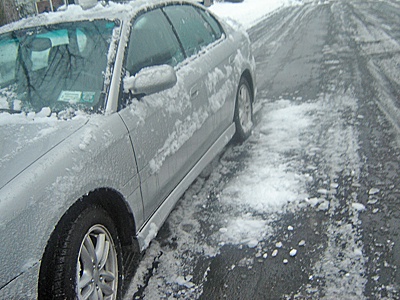All Nonfiction
- Bullying
- Books
- Academic
- Author Interviews
- Celebrity interviews
- College Articles
- College Essays
- Educator of the Year
- Heroes
- Interviews
- Memoir
- Personal Experience
- Sports
- Travel & Culture
All Opinions
- Bullying
- Current Events / Politics
- Discrimination
- Drugs / Alcohol / Smoking
- Entertainment / Celebrities
- Environment
- Love / Relationships
- Movies / Music / TV
- Pop Culture / Trends
- School / College
- Social Issues / Civics
- Spirituality / Religion
- Sports / Hobbies
All Hot Topics
- Bullying
- Community Service
- Environment
- Health
- Letters to the Editor
- Pride & Prejudice
- What Matters
- Back
Summer Guide
- Program Links
- Program Reviews
- Back
College Guide
- College Links
- College Reviews
- College Essays
- College Articles
- Back
Rethinking Old Laws: A Call to Safety
The main perk of turning sixteen is getting a driver’s license, but are teens mature enough to handle this responsibility? Gaining a license means maturing and becoming more independent. It requires major responsibility and knowledge. Without proper practice and experience, driving can be really dangerous and a number of things can go wrong. Car accidents occur often, and they are most common among teens due to of immaturity. Therefore, the driving age should be raised to 18 because young teens are immature, and inexperienced teens on the road are a danger to themselves and to others.
The required age to drive should be changed to 18 because 16-year-olds are immature and not completely developed. Research shows that the number one leading cause of car crashes of teens is driver immaturity. Statistics show that the likelihood of crashes for new drivers is 10 times more likely than for older drivers. Teens also do not understand some of the consequences that can come along with driving, so they take risks and party without a clue of what could happen. At this age, the frontal lobe of the brain is also not fully developed yet. The frontal lobe deals with decision making, rational thinking, and weighing risks. These extra two years of aging will allow drivers to mature and learn more life lessons that can be applied to the actions that occur in a car and to develop more completely. Therefore, the driving age should be raised to 18 so that teens can mature and develop.
Another reason that the driving age should be raised to 18 is that inexperienced teens on the road can become a hazard for themselves and others. Most car crashes are caused by driver error, and most of these errors occur because teen drivers are inexperienced. If teens are out on the road when they really could still use more practice, they are creating a danger to themselves and everyone else around them. Some inexperienced teens would also agree that they are very nervous when getting out on the road because they have a lack of practice. These nerves increase the likelihood of accidents which will harm or kill both the teen and the other driver involved. Even if the teen did not hit another car, there are still chances of them running into trees or even poles. With these reasons said, the driving age should be raised because inexperienced teens are a danger to themselves and to others.
Even though there are sufficient reasons as to why the driving age should be raised, some parents and teens would disagree. Parents and teens might say that teenagers deserve independence and that they need a way to get around everywhere without relying on parents who have other things to do. However, these reasons can be easily fixed by carpools and such, while death from car crashes is a much more serious thing. Teenagers are still developing and need a few years extra to mature fully enough to comprehend what goes on in a car. Also they need these extra years to decrease levels of crashes that can harm teens and other drivers. 18 is a good age for the driving age to be because it allows the teen to get a car before college while still allowing time to practice, mature, and develop. Consequently, even though parents and teens might argue, there are much more solid reasons that cancel out their complaints.
Reasons that the minimum driving age should be raised to 18 are that teens are immature, and inexperienced teens on the road are a hazard to themselves and to other drivers. Teen drivers are immature which can cause them to do irrational things and crash a car. They are also inexperienced which makes them a hazard to the overall safety of drivers everywhere. In order to fix this, the driving age can be pushed back two years. From the time between 16 years and 18 years, drivers can practice in private areas to build their confidence and experience. There can also be more enforced driver’s education to ensure that teens are experiences the first time they take a car out onto the road. Doing these things will allow teens to develop, build confidence, and become experienced drivers, therefore lessening the risk of young drivers.

Similar Articles
JOIN THE DISCUSSION
This article has 0 comments.
